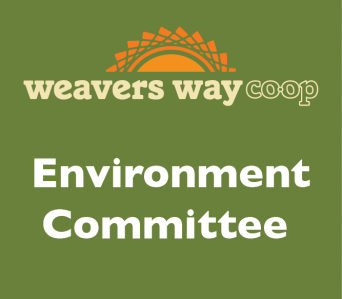
Have Yourself a Very Plastic-Less Holiday

Plastic is forever.
Let that fact sink in.
You say, “But I recycle.” Americans alone use 35 billion plastic water bottles every year, but only 6-7 percent of them go into new bottles. Most recycled beverage containers are exported to make synthetic fabrics and carpets, but carpets can’t be recycled and fabrics made from recycled plastic are of such low quality that they must be blended with virgin materials. Most “recyclables” actually end up in the landfill or worse, join the estimated 270,000 tons floating in the ocean.
Take a tour of your own home. Look at all the plastic in your refrigerator, in your cupboards, or on your table. Pretend that whatever you have will always stay in your house. You can’t ever get rid of it; it will just accumulate. That’s what is happening in the real world. Plastic never disappears; it just breaks down into smaller and smaller pieces. One million sea birds and 10,000 marine mammals are killed each year from the plastic you and I throw away. We are responsible for their deaths, whether or not we admit it.
To get into the holiday spirit, picture the festivities. What do you see? Families together with mountains of gift wrap, cards, ribbon and packaging material. Between Thanksgiving and New Year’s, household waste increases by 25 percent in the United States — about a million extra tons.
Wouldn’t we be kinder to our fellow creatures if we wasted less, especially plastic, during the holidays? Here are some suggestions, some from the Plastic Pollution Coalition:
Since most Co-op members are already aficionados of zero waste, I probably don’t have to remind you to use real plates, cups and forks over the holidays when entertaining. But, what about your family and friends? About a third of our solid waste is made up of food containers and packaging.
Avoid gifts in plastic clamshells. This unnecessary plastic packaging will likely head directly to the landfill. Find gifts that are unpackaged or give “experience” gifts instead. Avoid over-packaged items. Remember you are buying the packaging along with the gift.
One problem with ordering gifts online is that they arrive in multiple packages, including bubble-wrap or plastic peanuts. You can request minimum packaging at some stores. If you do acquire unwanted packaging, you can donate it to mailing stores.
Use newspaper, recycled paper or even fabric to wrap gifts. Instead of plastic, use twine or cloth ribbons.
Avoid plastic decorations like fake snow, which is made from finely ground polystyrene, a possible human carcinogen and environmental pollutant that lasts forever. Choose real garlands over plastic.
Buy toys made of wood and other natural materials. Keep in mind that plastics contain chemicals like phthalates and bisphenol A, harmful endocrine disruptors that can be absorbed by our bodies; 93 percent of Americans test positive for BPA.
Join the campaign to “Skip the Slip.” Sales slips are not usually recyclable because most are coated with BPA or BPS, another endocrine disruptor. Register clerks are known to have 30 percent more BPA in their systems, possibly caused by the sales slips.
Giving clothes? Choose natural fibers like linen, cotton, silk or wool. Polyester, rayon and nylon fabrics are made of thousands of tiny plastic microfibers. A single piece of clothing can add 2,000 plastic microfibers into the water system each time it is washed.
When shopping, keep an eye out for unexpected plastic. Some beauty products like face and body washes can contain 300,000 plastic microbeads, which end up in streams and oceans. If the item says “exfoliant” or “scrub,” it contains plastic microbeads. Even some deep-cleaning toothpaste contains polyethylene (PE), as does some lipstick, mascara, soap and sunscreen. Check the label, or visit the website Beat the Microbead (www.beatthemicrobead.org).
I wish the United States were as forward-thinking as Rwanda. Yes, Rwanda. In Rwanda it is illegal to import, produce, use or sell plastic bags or packaging except for hospitals and pharmaceuticals. While 15 African countries have some kind of ban on plastic bags, they don’t enforce them as in Rwanda where people can be fined up to $19,000 or spend as long as four years in jail for selling or manufacturing plastic bags.
Each of us would be more cautious about buying plastic if we remember that every piece of plastic that was ever made still exists in some form today and much of it is killing or injuring innocent birds, turtles and other marine life. Eventually it hurts us too.
Have a Happy Plastic-Less Holiday.
